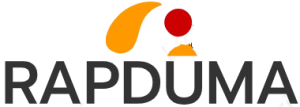The region is home to 49% of engineers from major tech companies and 27% of startup engineers in the country.
San Francisco, California, has become the epicenter of tech startups, particularly those focused on artificial intelligence (AI) in the United States.
A data analysis shared by venture capital firm SignalFire shows that the Bay Area region is home to 49% of all engineers from large tech companies and 27% of engineers from startups in the United States.
The proportion of tech engineers in the Bay Area has been increasing since 2022, indicating a growing concentration of talent. The region also hosts 12% of the top venture-backed founders and 52% of startup employees.
Josh Constine, a partner at SignalFire and former TechCrunch reporter, stated in a blog post that “San Francisco (SF) continues to dominate all other U.S. cities in terms of concentrations of talent and tech capital.”
A striking example is Daniel Lenton, founder of Unify. Initially based in Berlin, Lenton decided to move his startup’s headquarters to San Francisco. Unify, which specializes in a neural router that optimizes the use of LLMs (Large Language Models), has raised $8 million from investors like SignalFire, Microsoft’s M12 Capital, and A.Capital Ventures, founded by Ronny Conway.
Although it wasn’t difficult for him to have conversations with venture capitalists while in Berlin, Lenton noticed the advantages of having a physical presence in San Francisco after his participation in Y Combinator: “In one week, I had daily meetings at different offices of other AI tech startups,” he recalled.
Anh-Tho Chuong, co-founder and CEO of the open-source billing platform Lago, also decided to move to San Francisco from Paris.
Though she had initially planned to move her headquarters to New York due to easier travel and time zone alignment, her experience in San Francisco during May made her change her mind. “A year ago, everyone was saying SF was dead, but now I see that everyone has returned,” Chuong said. Lago has raised a total of $22 million from various investors, including SignalFire and FirstMark.
Jason Lemkin, founder of SaaStr, recently stated in a post on X (formerly Twitter) that he has returned full-time to the San Francisco Bay Area, noting that the region is “clearly the center of the AI boom.”
Chuong’s decision was driven by how easy it is to build her company in San Francisco: “We feel that the talent pool is better. Plus, the customer base is better here in San Francisco than anywhere else.”
Lago, which offers an open-source alternative to Stripe focused on usage-based billing, has been growing mainly through word-of-mouth and incoming requests, many from companies in the Bay Area.
Both Lenton and Chuong emphasized the role of Y Combinator and other accelerators in creating a conducive environment in San Francisco, including numerous opportunities for events and meetings that foster valuable and informal connections between founders and other key players in the tech ecosystem.
As Y Combinator partner Diana Hu described it: “San Francisco is the place in the world where you can make luck,” referring to the concentration of resources and spontaneous interactions that facilitate the growth and success of startups.





